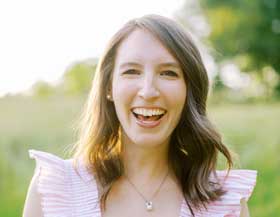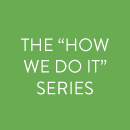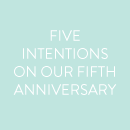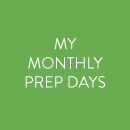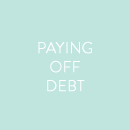17 July 2017
If you’ve ever felt like you can’t relate to my Marvelous Money posts because I’m a weirdo who loves personal finance and you’re just an average millenial trying to keep it together, I’ve got a treat for you today!
My younger sister, Kim, is one of you (ha!). John and I have had the chance to coach her on a few money things over the years, but her finances have still been a source of frustration for her. When she mentioned at Christmas that her church was holding a Financial Peace University soon and that she wanted to attend, John and I jumped at the chance to gift a seat to her and her boyfriend, Kyle. (Though we haven’t taken Dave Ramsey’s course, we have many friends who have, and know how lifechanging it can be.) My only condition? That Kim answer my questions for Em for Marvelous readers! :)
Please welcome Kim, and get ready to be inspired!
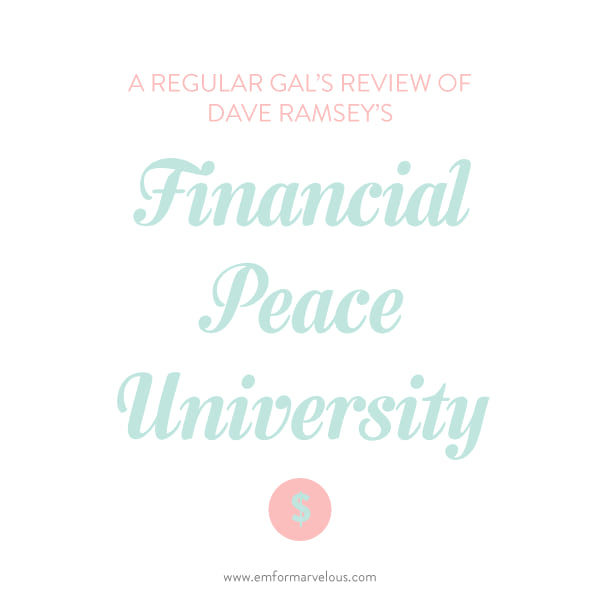
Tell us a little bit about yourself and your background with money.
Hi, all! My name is Kim and I am Em’s younger sister. I am also a 28-year-old physical therapist who lives in Nashville, TN and got to attend Financial Peace University at the beginning of this year with my boyfriend, Kyle. Part of the reason I relocated to Nashville from Boston (where I went to grad school) was to get a jump on my student loans by taking advantage of a more competitive market and lower cost of living, while still being able to enjoy my 20s. While I don’t consider myself financially illiterate, prior to FPU, I had never made a budget or thought about how to appropriately allocate my money, and I only had an IRA because John and Emily told me to get one – and then literally walked me through it (thanks guys!).
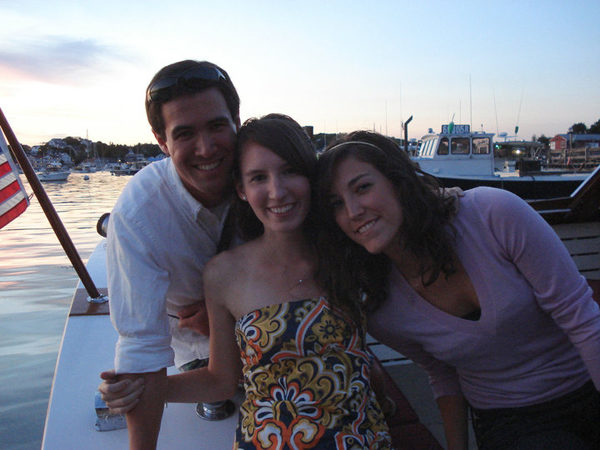
What was your biggest money struggle before Financial Peace University?
My biggest struggle was definitely knowing how to allocate my money appropriately. I feel like the word “budget” gets a really bad rap, and I didn’t feel so kindly towards it prior to FPU, so I didn’t do very much of it… which meant that at the end of every month I was left wondering where my money had gone and/or having to wait to get groceries/gas/etc. until I got paid again, even though I wasn’t buying extravagant things. And I definitely felt strained to make my monthly rent and loan payments, even though they were both completely affordable with my salary. And since I felt strained with my bills, there was no way I felt I could save money for the future, either.
From Kyle: I felt like I never had enough money even though I made a good amount of it. I just didn’t know what happened to it all.
Why did you decide to go to FPU? What were you hoping to get out of it?
I decided to attend FPU because my finances were more stressful that I wanted them to be and I didn’t know what to do about it (and because Em offered to gift it to me – thanks girl!). I felt like I made good money, had started an IRA early, contributed to my retirement through work and still didn’t have a sound plan or goals. I just felt queasy every time I thought about long term planning, or really money at all, especially my student loans. And, I would often make rash purchases (TARGET) that I later regretted because I thought I had the money available when I really didn’t. I hoped to figure out how to not feel stressed about my money and make it work for me in achieving my goals instead of holding me back from them.
From Kyle: I wanted to establish good financial principles to live by since I knew I wasn’t living by any principles prior.
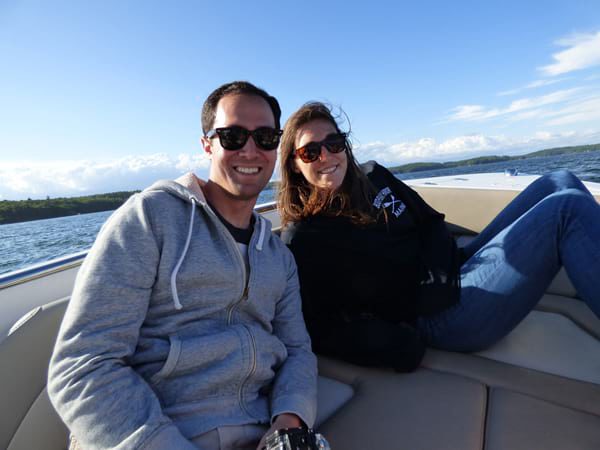
What was your biggest takeaway from FPU? What was the most helpful or impactful thing you learned?
My biggest takeaway was learning how to budget and that you HAVE to give every dollar a name – this has been CRUCIAL, y’all! I can’t tell you how much it has changed how I approach my money and my spending habits. It also really opened my eyes to where my money goes and what I value. For instance, I recently joined a gym that I LOVE but that is much more expensive than the one I used to go to. Instead of feeling guilty about this indulgence, I redistributed my budget, acknowledging that I will have to buy less clothes and lattes to be able to afford it; but, that is a CHOICE that I consciously made that I probably wouldn’t have even thought through if I hadn’t done FPU. I either would have been even more stressed about my money OR I wouldn’t have let myself join the gym, which has been really good for my health and self-esteem.
I think my budget gives me willpower – I have literally put things down in Target since FPU that I wouldn’t have thought twice about buying prior because of my budget. Every time I do that I feel really powerful, because I know I’ll have money for the things later on that I really want or need.
From Kyle: COMPOUND INTEREST (mind blown). It has been instrumental in creating a good financial structure for my future and understanding how important it is to start investing early for retirement. Putting a name to every dollar and actually budgeting has been really eye-opening.

You have talked to us and worked on your finances before. Why was FPU different or what clicked for you there?
I think the best part about FPU is how simple and accessible and easy to grasp it is. Dave is great about really breaking down each lesson, moving step by step in an organized way, and “chunking” up the weeks so you absorb each piece prior to moving on and building on what you have learned. It is very, very practical and you can walk out and immediately use what you’ve learned from Day 1, which I loved. I think the thing that was different from my conversations with you and John was how nitty-gritty and step by step it was – you have done a budget for years, so it was nice to have someone help me start from scratch (not that your budget isn’t amazing, it’s just not necessarily for beginners!).
Do you think it’s only for Christians?
Absolutely NOT!! There are definitely Christian overtones and supportive Bible verses, but at its heart, FPU is just simple, sound financial advice that everyone needs and can relate to, regardless of your faith.
If a reader was on the fence about going to FPU, what would you say to her?
GO! Give it a shot and if you don’t like it you never have to go back. But I think you’ll find value even from the first lesson. It has been one of the best things I have done for my personal development this year and has drastically improved my life.
What are you most excited about for the future?
BUYING A CAR I WON’T HAVE A PAYMENT ON! I never would have thought it was a possibility before FPU, but I’m doing it next week. Also the continued freedom and security and calm I feel about my money and my budget. And, as Kyle would say, compound interest!!!

What’s been your biggest lifestyle change since FPU?
After FPU, I was feeling all sorts of “gazelle intense” (a term Dave uses to encourage people to ferociously attack their goals) and got a second job as a PRN (or “as needed”) physical therapist in a local hospital. Now, I won’t lie and say that it’s fun giving up some weekends to work. BUT, it puts me significantly closer to being able to pay off my loans, gives me added value as a well-rounded PT down the road, and has been a welcome challenge to my brain. And I know that in the end, it will be worth it to “live like no one else so you can live (and give) like no one else.”
Anything else you’d like readers to know?
I know it feels like I only talked about the benefits of budgeting with FPU but that’s just because that is the step I am on – there is so much more to it than that! My biggest financial goal right now is paying off my student loans in full so that I can move forward to investing, retirement, saving for my kids’ college futures and GIVING BACK. Since Dave is all about streamlining the process and working step by step, I’m not thinking about those things yet – but when I do get there, I will know what to do, or at least what questions to ask to move forward towards those new financial goals.
Friends, doesn’t this interview just make your heart swell? I’m so proud of and excited for Kim!! Any other FPU graduates in the room? What was your favorite takeaway? Or does Kim’s review make you want to attend? You can find one in your area here, if you’d like!
P.S. Kim did indeed buy that car with cash last month! Yeah girl!!
8 March 2017
In my last Marvelous Money post, I shared our current Big Goal: paying off our mortgage early, in the next five years. I’ve had some questions about how and why we are doing that, so I thought we could chat about it today!
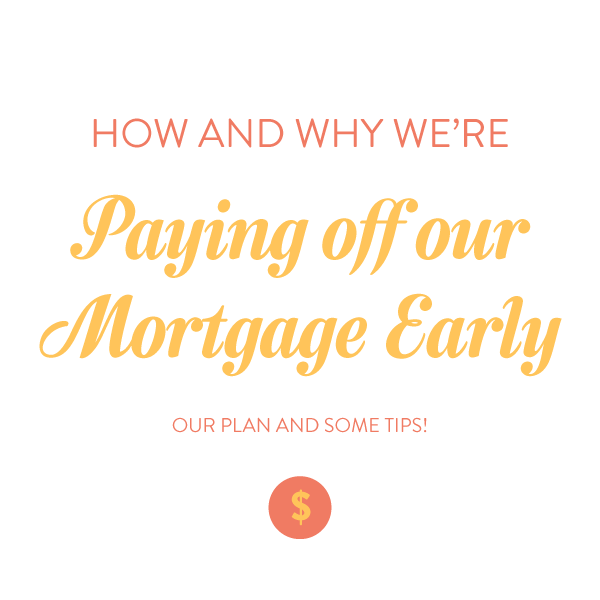
Why we are paying off our mortgage early:
Though paying off our mortgage early seems like a slam-dunk choice to us, there are pros and cons. Here are a few:
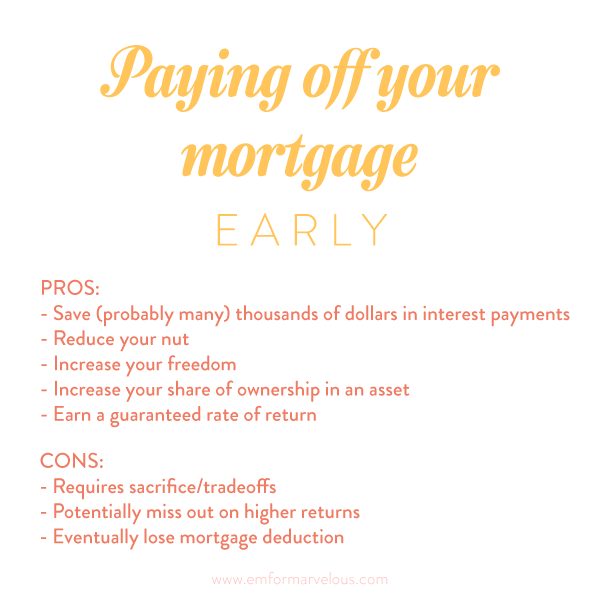
To expand a bit on these reasons:
— Save (probably many) thousands of dollars in interest payments: By paying off our mortgage more than 20 years early, John and I will save roughly $120,000 (!!!!!) That is a LOT of vacations and dance lessons and flights to see loved ones and delicious dinners out over a lifetime. That excites us!
— Reduce your nut: Megan McArdle describes your financial “nut” as “the amount of money that you absolutely have to pay every month if you don’t want scary-looking men to start repossessing your possessions.” Think: fixed expenses like car loans, student loans, mortgages, and the electric bill.
— Increase your freedom: The smaller your nut – the fewer obligations you have per month – the more freedom you have. If your nut is tiny, you can quit your job for one you love with a lower salary, or start your own business, or stay home with your kids. You can travel, or support charities that matter to you, or buy the most delicious-looking food at Whole Foods every week.
— Increase your share of ownership in an asset: As you pay off your mortgage, you’re buying more and more of your house from the bank and building equity (money in your pocket if you choose to sell one day!).
— Earn a guaranteed rate of return: You can think of eliminating a future payment as earning a guaranteed rate of return. For example, if your mortgage has a 4% interest rate, you’re effectively earning 4% interest on the money you use to pay off your loan.
On the other hand…
— It requires sacrifice and tradeoffs: This is the hard part, as we already discussed! For us, paying off our mortgage early means forgoing vacations, reducing our grocery budget, delaying clothing purchases, cooking at home, (almost) never going to the movies, not purchasing alcohol, and more.
— You potentially miss out on higher returns: The most common argument against paying off your mortgage early is that if you instead invested those extra payments in the stock market, you could earn a higher rate of return (since the stock market averages 9ish% per year over the long term). While this is true, it’s also true that most people don’t have the willpower to actually set aside that money and watch it build without dipping into it.
— You’ll eventually lose the mortgage deduction when you pay off your mortgage: This is true, but it’s still not a good reason to keep your mortgage, because the math doesn’t work out. Dave Ramsey explains more here, but the upshot is you’d always be paying more in interest than you’d save in taxes.
For us, the freedom and peace of mind we will gain from having no mortgage before June enters school far outweighs the sacrifices we’re making now and the potentially higher returns we’re missing out on.

Photo by Anna Routh – see more of our home here.
So that’s our why! Let’s talk about our how.
Very simply, we’re paying a set amount per month over and above our normal payment. Since we live and die by our budget, we’ve found that budgeting for that expense just like everything else has been the most helpful instead of waiting for “extra” funds to pop up.
When we first started attacking our mortgage three years ago (after we paid off our student loans and car loans), we did the simplest thing: we put the extra money directly toward our mortgage. (Our mortgage lender allowed us to make manual online payments, which we did every month.)
A year and a half ago, however, we decided to take things up one more notch by aiming for the best of both worlds. Since the main critique of paying off a mortgage early is that it doesn’t make sense to pay off a low interest rate mortgage when you could be earning higher rates of return by investing, we decided to invest the extra money we had been paying toward our mortgage.
So, instead of directly applying the money to our mortgage, we now transfer our extra payment (the same amount as before) to a brokerage account every month, where it is invested in a mutual fund. When we reach the full amount we need to pay off our mortgage, we’ll pay it in one lump sum. That will be a sad day for our bank account, but a happy day for our assets :)
A word of caution: I would only consider doing our “next level” system if you have a long track record of steely willpower with your money. It is so tempting to just take a little here or there as we watch that fund grow and other needs come up, but for this plan to work, you have to consider it absolutely untouchable!
Also, this approach requires a willingness to take the risk that the money you’re saving for paying off your mortgage could actually lose value.
If you’re nervous you’d be tempted or don’t want to stomach the risk, just apply the extra payments straight to your mortgage – done and done. Also a fantastic option.

Our master bedroom – photo by Callie Davis
We’ve still got a few years to go, but once we get under $100k owed, I think we’ll make a visual countdown somewhere in our home! I remember watching the Rays $90k chalkboard countdown dwindle month after month whenever we went over for dinner. SO exciting, and such a great teaching opportunity for kids!
One caveat and one piece of encouragement before I sign off of this exceedingly lost post.
Caveat: Paying off your mortgage early may not be the right money goal for you right now. Dave Ramsey considers it baby step 6 of 7, after paying off all other debt, building an emergency fund, and saving for retirement and college. It is an awesome goal, but one you should probably tackle after everything else is squared away.
Encouragement: Just because most Americans have a mortgage doesn’t mean you have to!! When you live like no one else, you get to live like no one else – free from worry about money, and at peace with whatever the future holds. If paying off your mortgage is important to you, I truly believe you can do it! I’ll be cheering you on!!
There’s about a million more things I could add to this post, but I’ll leave it there for now! If you’d like to read more about paying down debt in general (including info about how we freed up enough money in our budget to make our extra payments), click here.
I’d love to hear: Are you hoping to pay off your mortgage early? What financial goal are you working on right now? What’s holding you back from getting ahead with your finances, or where do you feel you need the most help?
23 January 2017
Two years ago, I wrote a Marvelous Money post about preparing financially for a baby. I did not, in fact, have a baby at the time, and so I took great pains to tell you to take my advice with a grain of salt. I also promised to revisit the topic at some point in the future. Today I wanted to touch on one aspect of our financial life post-baby, and I hope there will be more to come in the future. And good news! Whether or not you have kids (or ever plan to), I think you’ll find this post helpful, because it centers around what I feel is one of the most important personal finance topics to truly take to heart: trade-offs.

In preparing our 2017 budget, we decided to cancel the trip we’d planned to take to the Southwest this year.
Here’s the thing: we have the money to take this trip. It’s sitting in our bank account. But, because we also have the Very Big Goal of paying off our mortgage in the next five years, we are choosing not to take it.
(Why am I connecting these extra mortgage payments to our foregone vacation instead of, say, our extremely expensive childcare? Because we were able to take more expensive vacations and still make extra payments before we had June, it might seem to make more sense to “blame” our childcare costs for this trip cancellation. But, because childcare is a must-do, and the extra payments are something we’re choosing to do, to me it seems like the payments are squeezing out the vacation.)
Were we disappointed when we decided to postpone this trip? Yes. But, it’s hard to feel disappointed when I think about all of the marvelous adventures we’re still going to have this year. We’re going to spend ten days on an Island in Maine with my family. We’re going to use the week we would have been in the Southwest to travel to Michigan with John’s family, a trip that will cost less than $1,000 compared to the $4,500 we were estimating for the Southwest. We’re going to take two long weekend 30th birthday trips (more about those soon!). And, as I shared in my 2017 goals, we’re going to have lots of fun right where we are, having everyday adventures close to home that cost next to nothing.
I think it’s very important to carefully consider your trade offs, and make them ones you can live with. We are sacrificing a lot in the hopes of paying off our mortgage more than 20 years early – fancier vacations, new cars, clothing, going out to eat, home purchases, etc. We know that the freedom we’ll have when we own our home outright – and the cash flow we’ll have in our budget once we’re not making a monthly mortgage payment plus more every month – will be more than worth the sacrifices we’re making now.
But we also knew the trade off wouldn’t be worth it if we were miserable for eight years, living in a holding pattern, eating peanut butter and jelly every night, and never spending anything but the absolute minimum. So, we still go on vacation. We still eat out. Though compared to some of our peers we might be scrimping and saving, by many people’s measure we are living high on the hog — and that’s how we choose to see it. We feel immensely lucky to do all the fun things we get to do while still being able to save so much for our Big Goal.
Do you have a big goal, too? Paying off your student loans? Building an emergency fund? Buying a car? Saving for a down payment or an adoption? Maybe you want to pay off your mortgage, too? I’d encourage you to look at the trade offs you’re currently making, and see whether you can make any changes to both save more money AND have more fun. I truly think it’s possible, but it might take a mindset shift even more than a change in behavior. As Tony Robbins said, start rich.
I’m cheering you on!! And I’d love to hear – what big financial goal are you working toward now? What trade-offs are you making to get there?
28 November 2016
Around this time every year, I start to feel a little anxious about the coming year — specifically the finances of the coming year. By November, we’ve usually started talking about things like vacations we’d like to take, purchases we want to make, and savings goals we’d like to hit. We’ve submitted our pledge to our church. We know what our childcare expenses are going to be. But I don’t yet have a map of how it’s all going to fit together, and so I start worrying: will we be able to pay for everything we want to do? Will we have the money to take these vacations we’re talking about? Will we need to trim our budget, or will we get to expand it?
I hate that anxious feeling. And I think that’s how I’d feel every month if I didn’t have a budget, because a budget is a plan. It reassures me that I’ve taken care of everything that I need to, and that if I stick to the budget, I am free to spend money without guilt, I don’t need to worry about paying bills, and I can rest assured that I’m making progress on all of my savings goals.
I LOVE feeling like that. So this weekend, John and I sat down and made a plan for 2017. We do this every year, and I’d encourage y’all to try it, too! Here’s what we did.
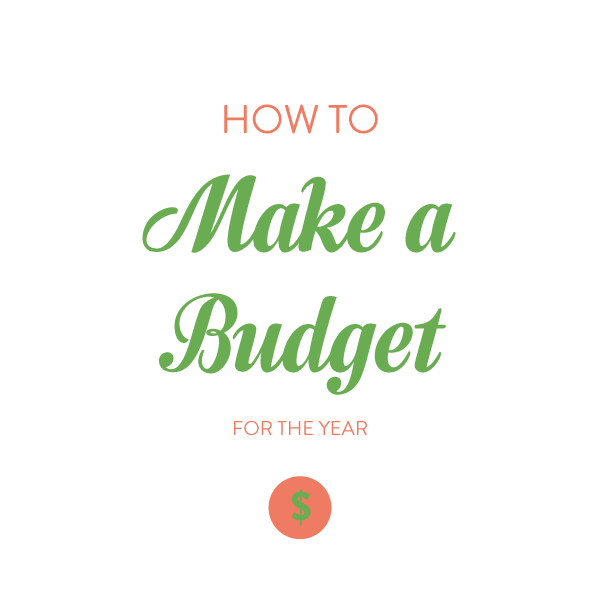
We started by setting aside about two hours, after June was in bed so we wouldn’t be interrupted. We opened up a fresh Google doc and copied and pasted the structure of our budget (formulas, categories, etc. – you can read more about that here). Then we started adding in numbers:
First, we entered in any fixed amounts: numbers that we can’t change or don’t plan to change, on both the income and expense side. A few examples: our salaries, 401k contributions, taxes, and our mortgage.
Then, we moved to the “slightly flexible” categories: ones where we could make changes, but there’s not a ton of wiggle room and it would require a lot of effort. A few examples: childcare, cable and internet, charitable giving, and groceries.
Finally, we enter in what we’d like to spend in the flexible categories. A few examples: vacation, dining out, gifts, and clothing.
Depending on whether or not you’ve kept a budget in the past, it will be more or less challenging to pull these numbers. Since we have a lot of data to look back on, we were able to simply plug in a lot of numbers from 2016. Still, we do talk through each category to see if any adjustments are needed for the upcoming year: Are we due for new tires? Will we be flying more than usual? Will we be buying lots of wedding gifts? If you haven’t kept a budget in the past, look back on a month or two of receipts or credit card statements to help you estimate.
Now it’s time to look at the bottom line: With all of your projected income and expenses taken into account, is your budget for the year in the black or in the red?
If it’s in the black: great! When we have a less than $1,000 surplus, we leave our budget as-is, because that’s a small enough amount to us. However, if the surplus were more than $1,000, I’d want to assign that money somewhere (savings, giving, or an expense category), because the goal is for every dollar to have a job.
This year, when we first did the math, our projection was in the red. But no need to panic! This is why we forecast a budget, so we’re not realizing this next October, or whenever our bank accounts run dry.
If you’re in the red, too, it’s time to go back over all of those flexible and semi-flexible categories with a fine-tooth comb, and talk through any options for cutting your expenses. For us, we talked about reducing our vacation, home, clothing, personal care, and childcare expenses. We also decided to forgo one month of extra payment on our mortgage in order to make room for the additional money we want to give to our church’s building campaign next year. These are tough decisions, but I firmly believe it’s better to make them now, when you’re in control, rather than when you’re scrambling and your options are limited. Cut, cut, cut until your budget is balanced.
Once your numbers come out even, congratulations! You have a financial road map for 2017, and it’s going to be an awesome year!!
Your next step is to set up a system to track your budget every day, week, or month, like through a Google doc, an online system like Mint or YNAB, or the envelope system.
You’ll also want to make plans to check in periodically to see how you’re pacing – we do that every two months. After all, a budget is a plan, but plans can change. We adjust our budget throughout the year if our circumstances change or if we decide we want to prioritize one category over another. That’s totally fine to do, as long as the income and expenses balance out in the end!
I’d love to hear, friends: do you do any budget planning before a new year begins? How do you track your budget? Does talking about a budget give you the heebie-jeebies? Are there any money topics I can help you with in upcoming posts? I have a few brainstormed, but I would LOVE to hear what might be most helpful to you!!
P.S. More marvelous money posts: paying off debt, preparing financially for a baby, and paying for a car in cash.












